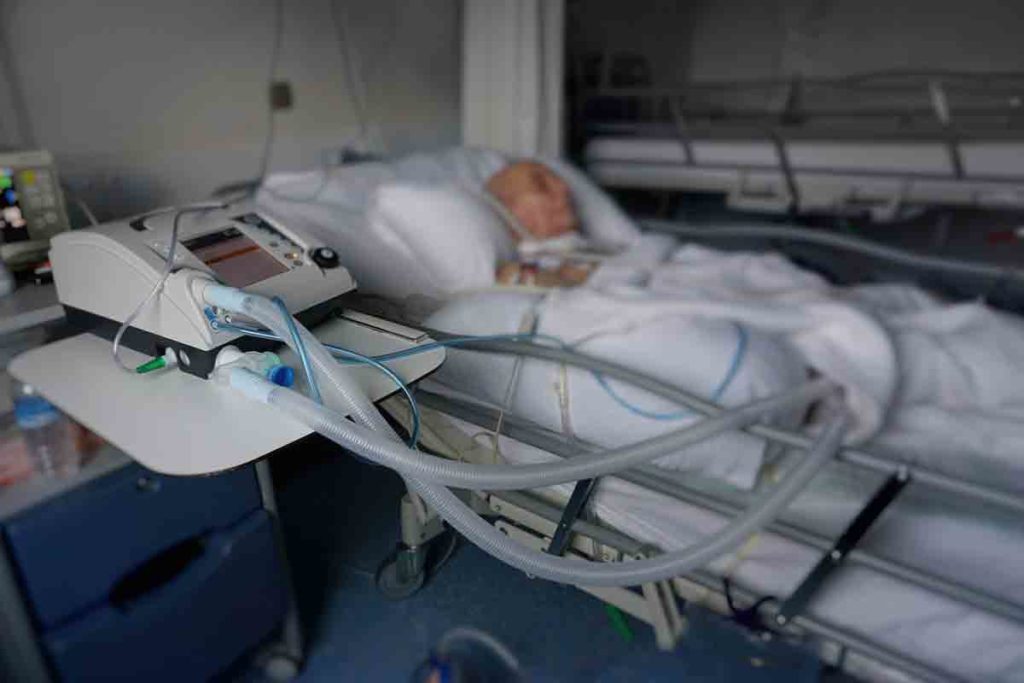Studies show that nearly 70 percent of Americans haven’t spelled out how they want their future medical care and end-of-life decisions to be handled. That can lead to choices being made for you that you might not agree with or want. Which is why everyone over the age of 18 should have written instructions in the form of an advance health directive and living will documents.
What is an Advance Health Directive?
The term advance health directive refers to a written statement or document that communicates guidance or direction for your future medical treatment in the event of your incapacity. If you become unable to discuss the type of care you would like to receive with your healthcare providers, an advance directive document will provide directions. It will also inform everyone involved in your care who you have chosen to make those decisions on your behalf.
There are two primary documents discussed in the context of Advance Directive instructions–a Living Will and a Durable Power of Attorney for Healthcare. It’s important to have both. Laws can differ by state on what is required in Advance Directive documents. Some states have form documents with the instructions for health care and end of life planning combined. Additionally, requirements for the number of witnesses, notarization, and the filing of documents can all differ depending on your where you live. Most states require either witnesses or notarization. To help avoid potential conflicts, witnesses typically must be someone other than your spouse, an heir, or the individual named as Agent under your Durable Power of Attorney. AARP has compiled sample forms and legal requirements for Advance Directives from every state. You can search for your state here.
When Do Advance Directives Go Into Effect?
As long as you can communicate with your doctor or healthcare provider your wishes about treatment and understand what they are telling you about your outcome, there’s no reason for he or she to consult your Advance Directives.
Research shows that 80 percent of Americans will die in some type of medical facility. There have been considerable advancements in technology, machines, and treatments to prolong life and delay a natural death. But while the time you spend living may be increased, the quality of your life may be drastically reduced. In other words, do you want to stay alive, just because you can be kept alive? The answer to that question is where the planning for Advance Directives begin. It’s not unusual for you to be concerned about someone “pulling the plug” while you still have life left in you. If there’s any chance at all you will recover, then you want that opportunity. Advance Directives give directions to your care providers whenever you cannot speak for yourself. As long as you can communicate with your healthcare providers and you understand what they are telling you about your outcome, there may not be a reason for he or she to consult your Advance Directives. Specific criteria must be in met in order to determine the need for the Advance Directives. Typically, at least two doctors must agree that an individual is suffering from one of the following conditions before consulting previously prepared Advance Directives.
Terminally Ill Condition
Terminally ill means you have an incurable condition and medical treatment will only prolong death. Without treatment or procedures, death will happen in a short amount of time.
Permanently Unconscious State
Permanently unconscious state means an injury, illness or disease has left you in a coma or state of unconsciousness that will not end. In this condition, you are totally unaware of yourself, your surroundings or environment and doctors are reasonably certain you will not recover.

End-Stage Condition
An end-stage condition is the result of an injury, illness or disease which results in an irreversible, severe and permanent deterioration, incapacity and physical dependence. Doctors determine with a reasonable degree of medical certainty that treatments would simply not work. Only when an individual cannot communicate directions and is classified with one of the conditions listed above will healthcare providers consult the patient’s Advance Directive.
Living Wills
While a Last Will and Testament determines what happens to your money and possessions, a Living Will determines what happens to you
Determining your end of life care is very personal and private and can be an upsetting matter. It’s not easy to think about being in a state where life-sustaining measures need to be performed for you to stay alive and in which you aren’t able to communicate your wants and wishes. But it is vital that you give careful consideration to those things now, while you can.
A Living Will is a type of advance directive that sets forth end-of-life instructions. While a Last Will and Testament specifies directions for distribution of assets and possessions, a Living Will is the document in which an individual communicates end-of-life care. You must write and sign your Living Will to ensure that your healthcare providers understand what actions they can and cannot perform to prolong your life, or ease your pain, should you not be able to communicate.
When making these decisions, you may want to start with reflecting on your beliefs and values. Determine what is important to you and what you are willing to allow in order to prolong your life.
Things To Consider In An Advance Directive:
Do you want CPR performed?
CPR stands for Cardiopulmonary Resuscitation. It can make your heart beat again if your heart stops or enters an abnormal rhythm. The person performing CPR will repeatedly and forcefully push on your chest. Oftentimes, if CPR doesn’t work, an AED or Automated External Defibrillator will be used. An AED sends an electric charge to shock the heart back into action.
Do you want to be placed on a ventilator for breathing?
When you hear about someone being placed on life support, it typically means they have been put on a ventilator to help them breath. Ventilators are machines connected to your body to force air into your lungs. Because the ventilator’s tubing is uncomfortable, medicine is usually administered to lessen the pain. In your Living Will, you can decide if, and for how long, you would like to be placed on a ventilator.

Do you want artificial nutrition and hydration?
If you are unable to eat, a feeding tube will be threaded into your body and placed in your stomach to deliver nutrition needed to keep you alive. If you are unable to drink, IV fluids may be administered through your veins to keep your body hydrated. While both will keep you alive, the National Institutes of Health says studies show that feeding tubes and IVs do not meaningfully prolong life when death is near. In your Living Will, you can decide if, and for how long, you would like to be given artificial nutrition and hydration.
Do you want to receive dialysis?
Depending on your condition, your kidneys may not be able to function properly or at all. Dialysis will remove waste blood and manage your fluid levels. You can specify if you would like to receive dialysis and for how long.
Do you want to receive antibiotics or antiviral medications?
Antibiotics and antiviral medications can be given to treat infections that may be ravaging your body. You can choose in your Living Will whether you want the infections treated aggressively with medication or if you prefer to allow them to run their course.
Do you want to be an organ or tissue donor?
Organ donation is a very personal matter. Some people have no problem making the choice to allow their organs to be given to someone else. For others, cultural, spiritual, or personal beliefs may keep them from doing so. Either way, the choice is yours and it’s something you should decide as part of your Living Will. If you chose to donate your organs, you will be placed on a life-sustaining support system until the organs can be removed. If your Living Will states that you do not wish to be put on life support, you may want to specify that it’s allowed for organ donation.
It’s important to note that Emergency Medical Technicians (EMTs) cannot honor Advance Directives. If 911 is called and EMTs arrive, they are obligated to do what is necessary to stabilize you and get you to a hospital. EMTs are required to do everything medically possible to save a life. Before an Advance Directive can be carried out, doctors will have to fully assess your condition and determine what your prospects are. In order to make that assessment, they will have to carry out some form of lifesaving treatment. Depending on the prognosis, the treatments can be taken away based on what is written in your Advance Directives.
A Durable Power of Attorney for Healthcare
Your Durable Power of Attorney for Healthcare will work with your healthcare team and give them instructions on your behalf.
A Durable Power of Attorney for Healthcare is a document that allows you to designate someone to make healthcare decisions for you should you be unable to do so. That person, called an agent or healthcare proxy, is required to follow your directions concerning medical care and lifesaving treatments on your behalf.
Except for your doctor, you can choose anyone over the age of 18 to be your Durable Power of Attorney for Healthcare. Most people chose a spouse, child, grandchild, or another close relative; give careful consideration in making your choice. Choose someone you trust and who you know will carry out your directions, regardless of what their emotions may be in an emergency or life-threatening situation. Not everyone may be comfortable or suitable for the role. Before you put it in writing, talk with the person you are designating to make sure they feel that they will be able to perform the duties you are asking them to.
Once you’ve determined who that person is and he or she has agreed to take on that role, it is important that you have an in-depth discussion about your wishes. It is always advisable to talk through what you have written in your Advance Directives. Your Agent for Healthcare Decisions will work with your healthcare team and give them instructions on your behalf. Based on your discussion with your agent and the information you put in writing, he or she will make decisions on ventilators, feeding tubes or organ donation in accordance with your Advance Directives.
Other Documents To Consider Include:
DNR
You may want to consider including a Do Not Resuscitate or DNR order along with your other Advance Directive documents. If your heart stops beating or you stop breathing, hospital staff will do everything in their power to try and make it start working again. If that’s not something you want, a DNR will instruct doctors and nurses that you do not want to be resuscitated or given CPR.
POLST
A POLST or Physician Orders for Life-Sustaining Treatment is a medical form summarizing a patients’ end of life preferences. It’s a medical order that must be followed whenever or wherever you have a medical emergency and cannot speak for yourself. It has to be signed by your doctor, nurse, or physician assistant for it to be valid. Who can sign it may depend on the state you live in. A POLST form is recommended for people who have a chronic, serious or terminal condition where life expectancy may be a year or less. You can find the form at www.polst.org.

How To Prepare An Advance Directive
Consulting with a qualified attorney is a good route if you want to make it part of your overall estate planning.
There are several ways to prepare an Advance Directive. Consulting with a qualified attorney is a good route if you want to make it part of your overall estate planning. A local attorney should also be well-versed on your particular state laws and what’s required to make an Advance Directive. But an attorney isn’t required to make an effective Advance Directive. You can also obtain the forms to fill out from your healthcare provider, your local Agency on Aging or your state health department.
How To Prepare For An Advance Directive With Medicare’s Help
If you chose to prepare an Advance Directive with the help of an attorney, you will likely incur legal fees. You’ll have to pay fees for the attorney’s time to prepare your documents. If you are covered under Medicare, you may want to consider taking advantage of its advance care planning option. Under Medicare Part B, you can discuss preparing an Advance Directive with your healthcare professional as part of your yearly well visit.
Your doctor may be able to help you fill out the forms for your Living Will, DNR, or POLST, if you like. As long as your provider accepts Medicare Part B, and it is part of your yearly well visit, you won’t have to pay anything for the service. You will have to check with your doctor’s office when you make your yearly appointment to see if your doctor is willing to help you.
What Happens If You Don’t Have An Advance Directive
If you don’t have an Advance Directive, the American Bar Association says about 44 states in the U.S. have what are called “default surrogate consent laws” or what were once known as “family consent laws.” These laws provide a hierarchy of authorized family members beginning with your spouse who can make treatment decisions on your behalf. Without documents containing your wishes, your family members and loved ones will be left with the difficult choices on what to do with your medical care should you become incapacitated.
Under the doctor’s guidance, they are left to make their best guesses about what kind of life-sustaining treatment you would want. Although your loved ones may know you well, they might not make the choices you would make. It’s best for everyone’s peace of mind if you make those choices for yourself now.

Mental Health Care Directives Or Psychiatric Care Directives
Mental Health America says within the document, you can include medications and dosages that are helpful and those that are not.
End of life is not the only Advance Directive you can prepare before you need it. There are also directives that can be created in the event of a mental health crisis. This type of Advance Directive goes into effect if you are hospitalized and are unable to make decisions on your own because of the state of your mental health.
Mental Health America says within the document, you can include medications and dosages that are helpful and those that are not, names of hospitals and doctors you want involved in your care, a list of people who can take care of paying your bills and other business while you’re hospitalized, and people who are allowed and not allowed to visit you during your treatment.
Similar to a Healthcare Power of Attorney, you are also able to designate someone to make treatment decisions for you during the time you are unable to do so yourself. Duke University provides an online resource tool for the laws for Mental Health Advance Directives state by state.
It Is Prepared, Now What?
Once you have properly executed your Advance Directive documents, you will want to make copies. Give a copy to your primary care physician. If you have more than one physician, make sure they each have a copy. The individuals you have named as agents under your Durable Power of Attorney for Healthcare should be provided a copy, and you will want to have one on file at the hospital closest to you or where you visit the most. If you are in an assisted living facility or nursing home, it’s important for them to have a copy as well. Keep the original and store it in a safe place where it can be readily accessed should it be needed.
You can also download a Notice of Advance Directive card online from the American Hospital Association. Just print it, fill it out and carry it in your wallet or purse, so others will know you have an Advance Directive and where it is stored.
As time passes, your feelings may change on how you want to be cared for and what type of treatments you are willing to accept. Review your Advance Directives on a regular basis and, as long as you are mentally competent, changes can be made. Just be sure that new copies are made and distributed and old ones are destroyed.
Planning for end-of-life care has the potential to be an emotionally difficult process, however, making the decisions now provides peace of mind that everyone deserves.

Do you want to cite this page? Use our ready-made cite template.
